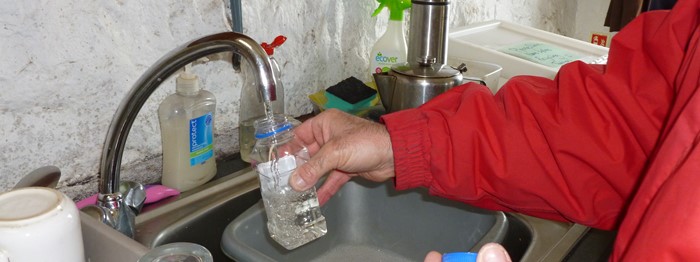Guidance on Serving an Improvement Notice
The Water (Scotland) Act 1980 (WSA) provides a comprehensive system for local authorities to enforce The Water Intended for Human Consumption (Private Supplies) (Scotland) Regulations 2017 (The Regulations). This Regulatory approach transposes Scotland’s obligations under the Drinking Water Directive Article 8. In particular, it places a duty on Local Authorities to serve a notice on the relevant person(s) under section 76G of the Water Scotland Act 1980 (as amended). This ensures that relevant persons are clearly notified of what needs to be done to make their PWS wholesome or sufficient. Local Authorities have discretionary powers to issue a notice in respect of exempt supplies. However, it is expected that local authorities will use these discretionary powers if there is a risk to health; it is recommended that local authorities develop a policy for these discretionary powers to ensure a consistent approach which is in the interest of PWS consumers.
The Regulations also create an offence of relevant persons failing, without reasonable excuse, to take any step specified in a notice issued under section 76G of the 1980 Act.
Notice Process - Action required when a supply is failing
The notice must contain:
- the reasons why the local authority is satisfied that the private water for domestic or food production purposes or for human consumption purposes is not/was not/is likely not to be wholesome or sufficient;
- the remedial steps which the local authority consider are required to ensure a supply which is wholesome and sufficient;
- the period in which the steps have to be carried out (at least 28 days must be allowed for representations and objections separate to the period in which the steps are to be taken).
Some examples of situations were Notices have been used are given in Annex A and a Notice template is included in Annex B.
Notice of Appeal
Local authorities are required to determine for their respective interests the persons who, individually or collectively, provide the supply of drinking water; occupy the land from, or on which, the supply is obtained or located; or exercise powers of management or control in relation to the supply. For example, you may own a property on a supply, own land which contains the source, pipes, storage tanks etc.
In defending an appeal, the authority should provide a detailed statement setting out the history of events, their reasons for taking enforcement action, a plan of the land affected by the notices, a description of the interests of the relevant persons and copies of any relevant correspondence with them, including where appropriate, a more detailed description of the remedial works and who is to carry them out, and comments on the points raised in objection (along with copies of the objection(s)); as well as copies of any other relevant documents upon which they intend to rely.
Scottish Ministers may decide to hold a hearing or public local inquiry and will appoint a Directorate for Planning and Environmental Appeals (DPEA) reporter to consider the representations made by the parties, who will submit a report with recommendations on whether the notice should be confirmed, with or without modifications.
To date, there has only been one appeal, which required the notice to be modified but generally found in favour of the local authority. Attached is a link to the case, where you can access the initial appeal submission and the subsequent decision notices issued to the local authority and the landowner.
Also attached is the link to the code of practice for handling environment appeals.


